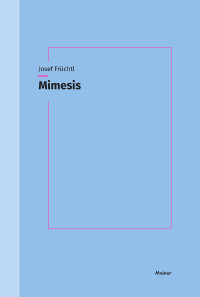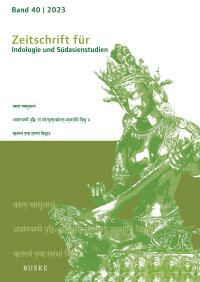Willkommen in der neuen Meiner eLibrary
Die neue »Meiner eLibrary« bietet Wissenschaftlern und Studierenden über ihre Bibliothek einen komfortablen Zugang zu den eBooks, Zeitschriften, E-Artikeln und vielen Open Access-Publikationen aus allen Programmbereichen des Felix Meiner Verlags, sowie der Partnerverlage zu Klampen und Helmut Buske.
Der Felix Meiner Verlag ist einer der führenden wissenschaftlichen Verlage Deutschlands mit dem Fachgebiet Philosophie. Zentral für die Verlagsarbeit ist die seit 1868 erscheinende Philosophische Bibliothek (PhB), die kontinuierlich erweitert und deren Ausgaben bei Neuauflagen laufend dem jeweiligen Forschungsstand angepasst werden. Derzeit sind in der PhB über 500 Texte aus 2400 Jahren Philosophiegeschichte als elektronische Ausgabe verfügbar. Zeitschriften, Editionen, wissenschaftliche Monographien, Wörterbücher, Nachlagewerke erschließen die ganze Bandbreite philosophischer Themen.
Der Helmut Buske Verlag ist einer der führenden sprachwissenschaftlichen Verlage Deutschlands. Im Mittelpunkt der Verlagsarbeit stehen für deutsche Muttersprachler konzipierte Lehr-, Arbeits- und Wörterbücher zu fremden Sprachen und Schriften, sowie Zeitschriften zur Linguistik und Romanistik. Seit 2021 führt der Buske Verlag zudem das Programm des Dr. Ute Hempen Verlages weiter.
Der zu Klampen Verlag stellt mit der "Zeitschrift für kritische Theorie", "Exit! Krise und Kritik der Warengesellschaft", seiner Essay-Reihe und den Editionen von Sonnemann und Marcuse sowie weiteren Publikationen einen großen Teil seines wissenschaftlichen Programms über die Meiner eLibrary zur Verfügung.
» Hinweise zum Umzug der Verlage in die neue Meiner eLibrary.
Erweiterte Suche
NEU IN DER ELIBRARY
Über die vierfache Wurzel des Satzes vom zureichenden Grunde
Eine philosophische Abhandlung 1. Auflage 1813
Philosophische Bibliothek, Bd. 755
Kleine Schriften zum »Großen Lernen«
Wáng Yángmíngs »reife« Lehre
Sino-philosophica, Bd. 2










 Powered by CloudPublish
Powered by CloudPublish